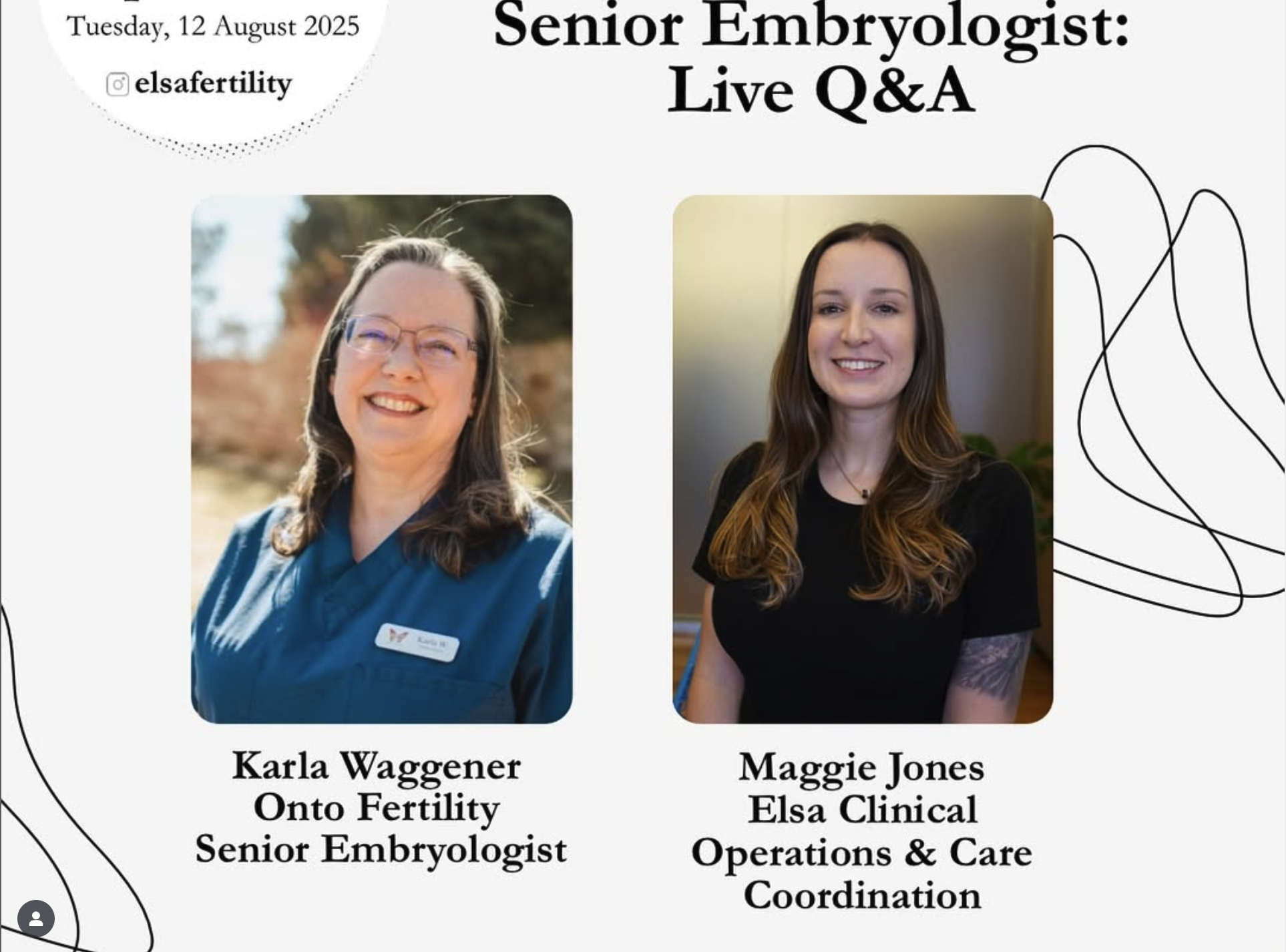Low AMH Levels, Now What?

A guide from Elsa Fertility for anyone feeling overwhelmed after low ovarian reserve results
If you’ve just received AMH results and the number looks low, you might be feeling confused, anxious, or even panicked.
Take a deep breath. We see this all the time—and the good news is: a low AMH result is not the end of your fertility story. Let’s walk through what it means, what it doesn’t, and what you can do next—with clarity, support, and a plan that fits you.
What Does “Low AMH” Actually Mean?
AMH (Anti-Müllerian Hormone) is produced by small follicles in the ovaries. It gives a general indication of your egg supply (ovarian reserve). Lower AMH levels suggest there may be fewer eggs remaining, which can be relevant for fertility planning—especially with age.
But here's the key: AMH does not predict whether you can get pregnant right now. It reflects quantity, not necessarily egg quality.
According to the American Society for Reproductive Medicine (ASRM), AMH is a helpful marker of ovarian reserve, but should not be used on its own to diagnose infertility or predict pregnancy outcomes (ASRM, 2020).
What the Research Says: Low AMH Doesn’t Equal Infertility
A major prospective study published in JAMA tracked 750 women aged 30 to 44 years who were trying to conceive naturally and had no prior history of infertility. The researchers examined the impact of ovarian reserve biomarkers—like AMH, FSH, and inhibin B—on actual pregnancy outcomes.
The results? Women with low AMH levels (<0.7 ng/mL) had an 84% predicted probability of conceiving within 12 months, compared to 75% for women with normal AMH. The difference? Not statistically significant.
Other markers like high FSH or low inhibin B were also not significantly linked to lower chances of pregnancy.
What does this mean for you?
- A low AMH level alone does not mean you are infertile.
- AMH is not a reliable predictor of whether you will get pregnant naturally
- Women should be cautious about making major life or treatment decisions based on AMH alone.
This study supports what we see at Elsa Fertility every day: you are not your number.
Low AMH and Age: What It Means for Your Fertility Timeline
If you're over 35 and have a low AMH level, it's a good idea to explore fertility preservation or treatment options sooner rather than later. That's because both egg quantity and quality naturally decline with age. However, low AMH is associated with a lower response to medications that stimulate eggs to grow for egg freezing, so you may anticipate needing some additional planning and treatments to best reach your goals.
This combination doesn't mean pregnancy is impossible—but it may shorten your fertility window and reduce the success rates of treatments like IVF or egg freezing. Getting a complete picture early on helps keep more options open.
AMH Can Fluctuate
It’s important to remember that AMH isn’t a fixed or infallible number. Levels can vary from month to month, and people sometimes receive different results on repeat testing.
According to ASRM, AMH variability can be influenced by lab inconsistencies, timing, and hormonal shifts. That’s why AMH should never be the only factor guiding important decisions (ASRM Committee Opinion, 2020).
Also worth knowing: long-term hormonal birth control—like pills or IUDs—can temporarily lower AMH levels, even if your actual ovarian reserve remains stable.
“Use of hormonal contraception, particularly long-term, has been associated with transient suppression of AMH, which often rebounds after discontinuation.” – ASRM, 2020
So... Now What?
The most helpful next step is a full fertility evaluation—not just AMH.
At Elsa Fertility, we offer a comprehensive fertility assessment designed to give meaningful insight, not just a single data point. It includes:
- A complete hormone panel (AMH, FSH, estradiol, TSH, prolactin, and more)
- A transvaginal ultrasound to assess Antral Follicle Count (AFC), a key indicator of egg supply
- A one-on-one consultation with a reproductive-focused OB/GYN
- Personalized guidance on what to do next—whether that’s egg freezing, trying to conceive, or pausing for now
All of this is coordinated remotely through Elsa, with local lab and imaging partners to keep things accessible and cost-effective.
Final Thought: You’re Not a Number
It’s easy to feel like your AMH result defines your future. But fertility is far more complex. It involves your age, your goals, your values, your health, and your unique life circumstances.
We’re here to help you understand the full picture and to support you in making informed, empowered decisions—whatever your path may be.
References:
Steiner AZ, Pritchard D, Stanczyk FZ, et al. Association Between Biomarkers of Ovarian Reserve and Infertility Among Older Women of Reproductive Age. JAMA. 2017;318(14):1367–1376. doi:10.1001/jama.2017.14588
American Society for Reproductive Medicine (ASRM)
Articles Recommended for You
Modern, personalized, effortless
Join our mailing list to stay informed with the latest in fertility.




